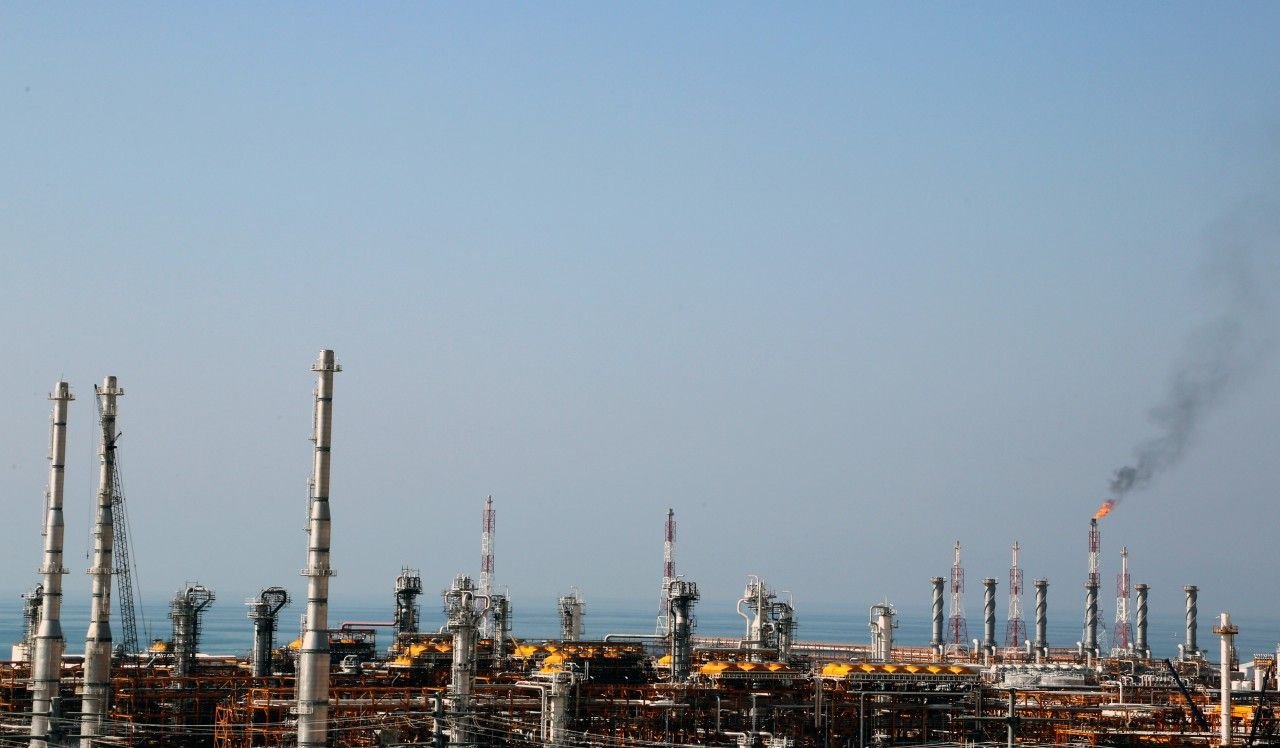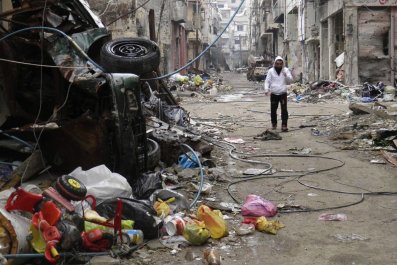Add this to the list of concerns over the crumbling state of international sanctions against Iran: The United Nations Security Council's authority and, specifically, its ability to impose sanctions against individuals around the world are being challenged - by Europe, no less.
Critics of the way the White House conducts Iran diplomacy used hearings on Capitol Hill this week to detail ways in which last November's "joint plan of action" - an interim agreement reached in Geneva between Iran and six world powers as part of a deal to limit Iranian nuclear ambitions - undermines economic pressures on the Islamic Republic.
"Iran's economy was veering toward the red zone, and unfortunately I think that we blinked four to six months too early," Mark Wallace, chief executive officer of the United Against Nuclear Iran, a sanction-watching group, told the House Foreign Affairs Committee.
At the same time, at U.N. headquarters in New York, diplomats aired worries about several recent cases going through European courts that they say usurp the council's ability to punish wayward actors on the world stage and to impose sanctions - not only on Iran but anywhere.
In recent years, Russia and China have managed to significantly water down the council's ability to authorize the use of military force in global hot spots. Opposing resolutions, based on Chapter Seven of the U.N. charter, which authorize various "measures" to "restore international peace and security," the two nations insisted on specifying that those measures may not include "the use of armed forces."
This leaves economic and trade sanctions as the most effective means of enforcing the Security Council's will. Now, however, even those are being weakened.
Earlier this winter, the European Union's General Court quashed decisions by the EU to freeze assets of an Iranian banker and seven Iranian banks and insurers linked to the country's nuclear program. Such Security Council-imposed sanctions, according to the court, were based on insufficient evidence of wrongdoing.
In this decision - as well as earlier ones on cases related to European Union sanctions based on U.N. resolutions - the court determined that by using Chapter Seven to impose sanctions on individuals, the Security Council arbitrarily acted as both judge and jury.
The rulings shift recent trends in international law, basically demanding more accountability from the Security Council, which until now was considered the top authority on such matters.
"In our vision of international relations, nobody should challenge Chapter Seven," said a U.N.-based diplomat, who spoke on condition of anonymity. "For the EU courts, the Security Council is no longer god," he added.
Several diplomats worried about the consequences of satisfying the European courts' demand for more transparency. The countries that supply lists of individuals and firms that are targeted for sanctions, these diplomats say, would now be forced to reveal their sensitive intelligence sources. And international bodies, they add, are not necessarily trustworthy with such information.
As a partial measure, in 2010 the U.N. named an ombudsperson who can recommend the delisting of people or companies targeted by the Security Council for sanctions. But some critics "still complain that there is no formal legal recourse, even though intelligence information cannot be aired in public," said Ruth Wedgwood, an international law professor at Johns Hopkins University.
In the 1990s the Security Council moved away from imposing punitive measures against whole countries.
The new "smart sanctions," as they were called, started when television news programs portrayed the suffering of ordinary people in Saddam Hussein's Iraq, which was under a heavy sanctions regime at the time. To ease the collective pain, the council began instead to impose narrowly targeted measures against Iraqi individuals and firms.
If the European courts now reverse that trend, "we will go back to blunderbuss sanctions that are indiscriminate and far reaching," Wedgwood says.
On the other hand, she adds, there is "sanctions fatigue" around the world, so Iran, for one, can leverage the European Union rulings, as well as the partial easing of sanctions contained in the Geneva deal, to poke holes in the global sanctions regime.
"The more procedural tools you give to a bad actor, the less credible the sanctions will be," Wedgwood says.
On Capitol Hill this week, several critics of the Obama administration added that the interim Geneva deal could further damage sanctions that were based on the Security Council resolutions but which under American pressure were ramped up and suffocated the Iranian economy over the last few years.
Administration officials say that unfreezing Iranian assets and other sanction-easing measures contained in the Geneva deal amount to no more than $7 billion. But critics say that for Iran they are worth much more.
"Recent macroeconomic trends, changes in market sentiment, economic gains in specific sectors subject to sanctions relief, and worrying signals of large-scale sanctions-busting by U.S. partners indicate that economic pressure on the Iranian government is diminishing," Mark Dubowitz, executive director of the Foundation to Defend Democracies told the Senate Foreign Relations Committee.
He raised doubts about the administration's claim that the measures contained in the deal are reversible, and that sanctions can be reinstated if Iran proves unserious about ending its nuclear weapons aspirations.
Russia, for one, is reportedly negotiating a deal worth $18 billion a year with Iran, in which it would trade goods for oil. But administration officials have pleaded with Moscow to halt the deal and claim that for now they may have succeeded. "My own sense of this is that nothing will move forward at this time," Under Secretary of State for Political Affairs Wendy Sherman told the Senate committee.
She added that officials made clear to Moscow that the proposed deal would be "sanctionable" and that it will disrupt the negotiations on a final nuclear agreement, which the six powers, including Russia, have renewed this week in the hope of finalizing within six months.
Additionally, this week the Treasury Department's sanctions point man, David Cohen, traveled to several world capitals, where he hoped to convey the administration's message that countries and companies should not rush to resume business with Iran.
But as would-be business partners flood Tehran, hoping to get first in line to renew business as usual, Dubowitz told the Senate committee that he wonders if Washington can still "restore fear in the international markets and prevent a psychological shift, both inside and outside Iran."
This week alone, after two high-profile visits to Tehran, influential European political figures - former British foreign minister Jack Straw and former Swedish foreign minister Carl Bildt - separately made positive assessments of Iran's future relations with the world.
More importantly for Iran, Turkish Prime Minister Recep Tayyip Erdogan visited Tehran late last month. On February 6, he complained in public that past sanctions meant the loss of Turkish-Iranian trade. In 2013, he said, trade fell 35 percent, to $13.5 billion, from $21.5 billion in 2012. Now that sanctions are easing, according to Erdogan, Turkey is determined to reach, by next year, the goal of $30 billion a year in trade with Iran.
On Monday a group of executives, representing some of France's largest firms, such as energy giant Total, telecom group Orange, power company GDF Suez, carmaker Renault and engineering firm Alstom, visited Tehran in search of business. They follow similar delegations from South Korea, Germany, Italy and the Netherlands, that have flocked to Tehran since the deal was reached in Geneva in November.
Crucially, even as the deal with Russia is pending, Iran's oil market is nevertheless reviving. This week, as Reuters reported, Japan became the first country to make a payment on oil imports under a provision of the Geneva agreement that allows Iran to access $4.2 billion in oil revenues that were previously frozen abroad.
But oil importers are hoping for much more once restrictions are completely lifted on banking and shipping insurance that made it all but impossible to import oil. In October 2013, just before the Geneva deal was struck, Iran's oil exports reached historic lows of 761,000 barrels per day. Since then they rose 60 percent, and this month reached a healthy 1.2 million barrels per day.
The White House believes that for now it has managed to stop the momentum of a proposed Senate bill which would threaten future sanctions against Iran if it fails to reach a final deal that would end its pursuit of nuclear weapons. Then again, the administration may soon come to realize that such a threat is the only way to convince the world - and the American public - that as long as Iran is not disarmed, the United States is determined to keep up the pressure.
Follow Benny Avni on Twitter: @bennyavni

























